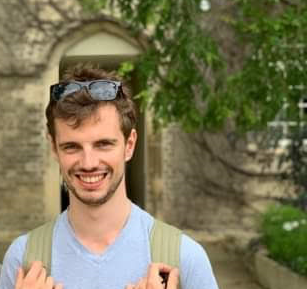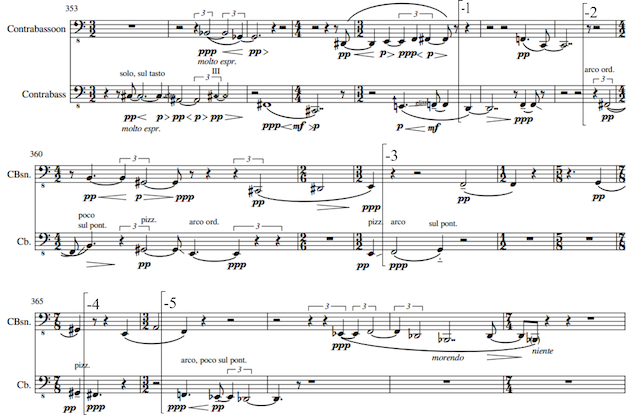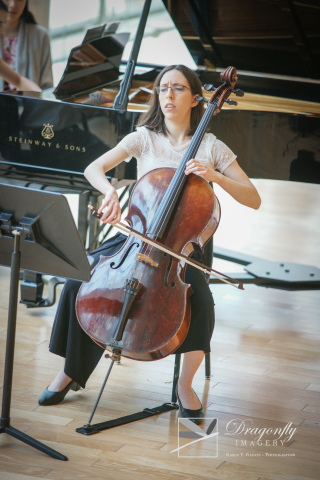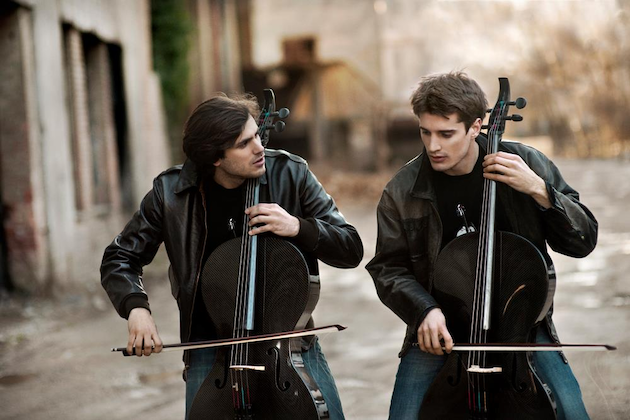Congratulations to James Donaldson and Shulamit Sarid, who have won their respective categories of the 2020 International Grant Competition for two very unique projects. Read more about their work and backgrounds below:


Project details: Topics and Formal Process in Post-Tonal Music
Throughout the history of music, composers used conventionalized patterns which echo to the contemporary soundscape, such as a familiar dance or a hunting call. This theory of musical topics has primarily focused on music of the eighteenth and nineteenth centuries, but his project expands this scope to explore such conventionalized patterns in music of the later twentieth century, focusing on the music of György Ligeti and Thomas Adès. In addition to exploring the socio-cultural implications of integrating objects that some may recognize and others may not, James analyzes how the interaction of their musical characteristics might contribute to a work’s musical language, adapting models such as transformational theory.
Shulamit Sarid (Performance category)

Shulamit has played as a soloist with the Thelma Yellin Symphony Orchestra, l’Orchestre classique de Montréal, and the McGill Contemporary Ensemble (CME). She is the recipient of numerous prizes, including the America-Israel and Canada-Israel Cultural Foundation, the Ben Steinberg, and McGill University’s Dean’s Essay Awards (First Prize, 2019). As a full scholarship recipient, Shulamit has participated in festivals at Tanglewood, Aspen, and Banff. Shulamit served in the Israel Defense Forces, giving concerts for the elderly, the sick, and children with special needs. In 2012, she traveled to Poland to perform at Auschwitz on the Holocaust Memorial Day.
Born in Jerusalem in 1993, Shulamit obtained a Bachelor of Music from the Tel Aviv University (summa cum laude) and a master’s degree from the Jerusalem Academy of Music. She pursued her studies for Artist Diploma at the Glenn Gould School of the Royal Conservatory of Music in Toronto with Profs. Andrés Díaz and Desmond Hoebig on a full scholarship from the David Lyons Foundation. Shulamit is currently completing a Doctor of Music degree (D.Mus 2021) at the Schulich School of Music with Prof. Matt Haimovitz. She has served as a lecturer at McGill, teaching the course “Introduction to Research Methods in Music.”

Project details: Welcome to the Jungle – 2Cellos and the Genre-Audience Relationship
Croatian-born cellists, Stjepan Hauser and Luka Šulić, together known as 2Cellos, have become an international sensation with videos racking up more than 750 million views on YouTube. 2Cellos’ signature style breaks the boundaries between different musical genres, from classical and film music to pop and rock, thus targeting a broad array of audiences, from professional cellists to young popular music fans. The duo has sparked an enormous interest in cello playing, encouraging children to discover cello music as a gateway to Western art music, especially by programming classical pieces alongside pop and rock songs. In their revolutionary way, 2Cellos make cello music more inclusive. Their message is clear: everyone is welcome.
Shulamit’s research explores questions of genre in the music of 2Cellos, which will then be applied in outreach performances. Building on contemporary genre theory, Shulamit will argue that 2Cellos’ music participates in various genres rather than belonging to a particular genre. The contradicting interpretations that the music of 2Cellos affords shed light on the complicated genre/audience affiliation, as there is no one-to-one fit between musical expertise and identification with this kind of music. Yet despite the blurriness of boundaries between them, genres continue to play a crucial role for 2Cellos’ listeners and the ways they identify with popular and classical music.
Drawing on the popularity of 2Cellos among young people, Shulamit intends to develop an outreach program in primary schools in Montreal, with the aim to inspire children to take up string instruments. In the spirit of 2Cellos, she will program classical hits like the prelude from Bach’s First Cello Suite alongside 2Cellos’ arrangements that she will play with cellist Wei-An Hung. The performance will also feature a duo of young cellists from the McGill Conservatory.
Shulamit is grateful to Prof. David Brackett and Prof. Lisa Barg for their guidance in this project, Prof. Matt Haimovitz for his contribution to the research, Prof. Lena Weman for her support in Shulamit’s writing, Renaud Boucher-Browning for his help in the application process, as well as Bluma Sarid, for the idea to write about 2Cellos and the impact they have had on young cellists.


